How do you search for the past? Where is the evidence of the Jewish inhabitants, the transports and their fate during the war preserved?
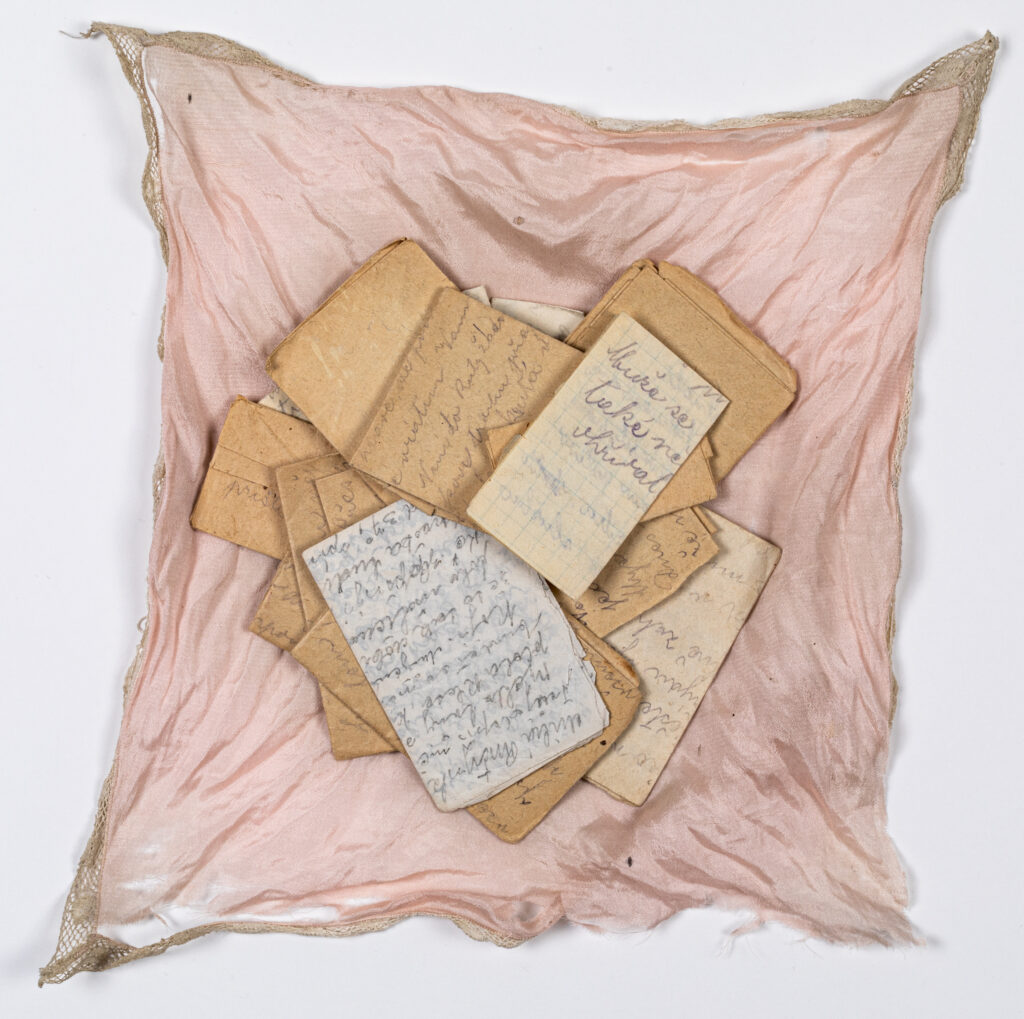
How do you search for the past? Where is the evidence of the Jewish inhabitants, the transports and their fate during the war preserved? Monday, November 10, 6 p.m. The lecture will offer an overview of the main sources and databases on the history of the Holocaust in the Czech lands and show how historians piece together the stories of individuals and communities. You will learn where to look for archival documents, photographs, personal testimonies, and how valuable materials from family archives are. Jana Šplíchalová, historian at the Jewish Museum in Prague, will also share her research experience for the preparation of exhibitions. Another lecture from the accompanying offer to the ongoing exhibition Voices. Admission is voluntary.
The Revisionist Movement in Moravia
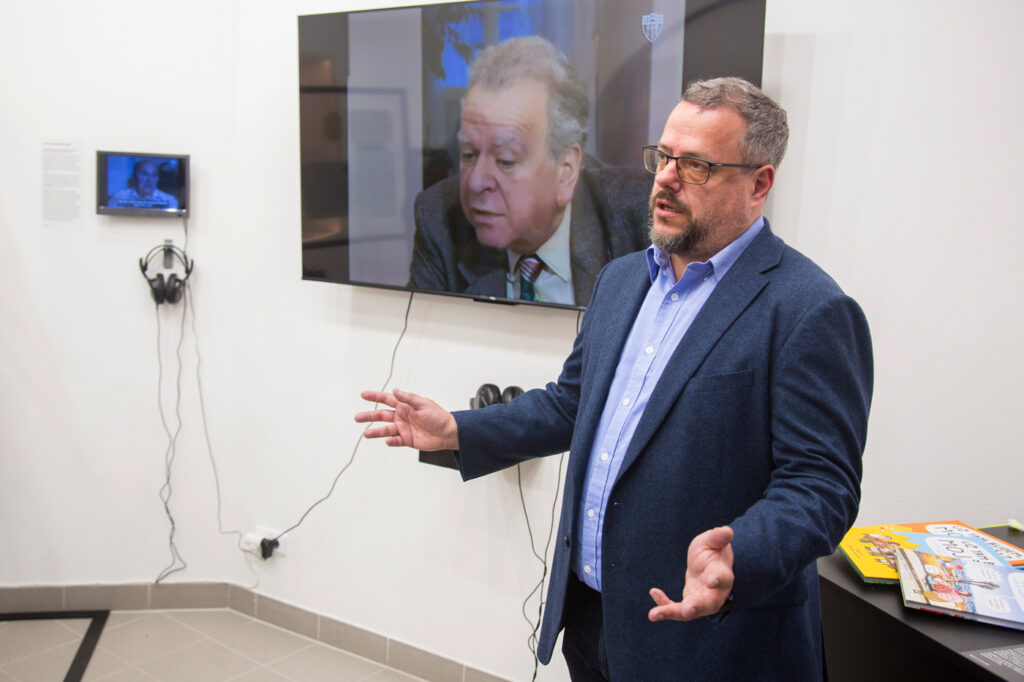
Revisionist Movement in Moravia Monday 3 November at 6 pm Brno is not Prague, it is not Vienna, but it is not Mukachevo either. It is somewhere in the middle. And so, thanks to migration to the West and the personality of Oskar Rabinowicz, it became the political center of the New Zionist Organization and its scouts called Betar, radical Jewish nationalists better known by the popular name of Revisionists. The Revisionist movement, generally regarded as radical right-wing and fascist, formed at the dawn of World War II into an underground organization offering especially the young their last hope for salvation. After the creation of the state of Israel, led by left-wing socialists, the revisionists fell into silence and oblivion. At Martin Šmok's lecture you can learn more about the Revisionists in Moravia. Admission is voluntary.
White Places of Jewish Moravia and Slovakia - conference
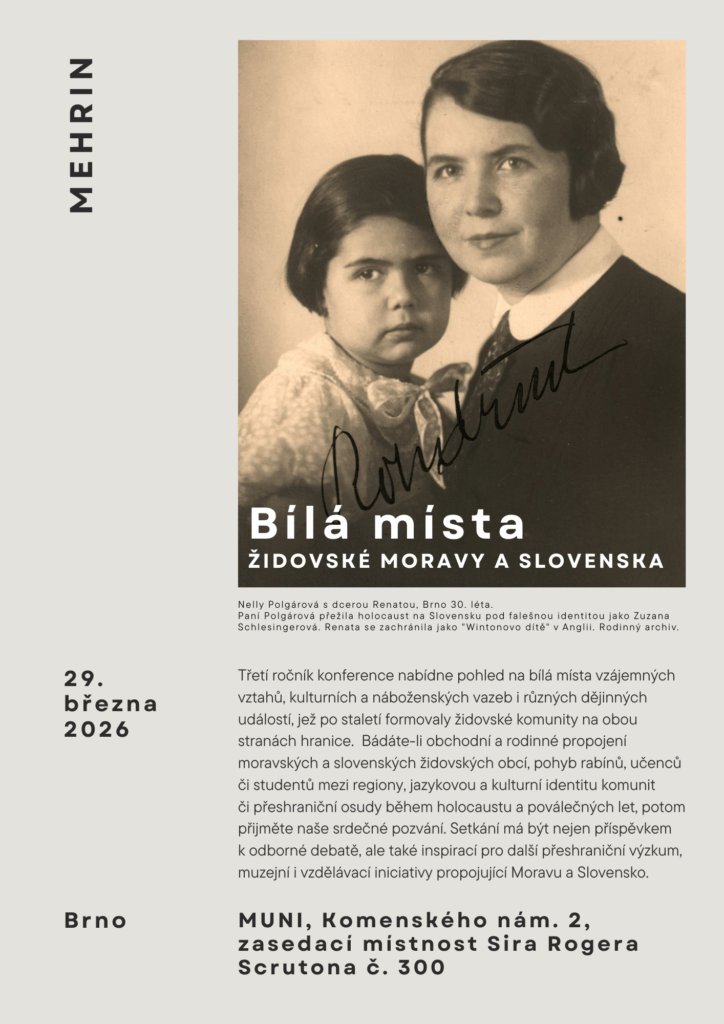
The White Places of Jewish Moravia and Slovakia - Conference 29 March 2026 in BrnoMUNI, Komenský nám. 2, Sir Roger Scruton Meeting Room No. 300Welcome to the historical conference on Moravian-Slovak overlaps in European Jewish history, which will offer insights into the mutual relations, cultural and religious ties and various historical events that have shaped Jewish communities on both sides of the border over the centuries. Contributions may focus on existing research and the naming of white spaces in the following areas, for example:- business and family ties between Moravian and Slovak Jewish communities;- the movement of rabbis, scholars and students between the two regions;- cross-border marriages, families and businesses between Moravia and Slovakia;- the influence of Moravian Jewish communities on religious life in Slovakia and vice versa;- the linguistic and cultural identity of Jewish communities;- flight and hiding 1938-1945;- stories of families divided by the border;- reconstruction of Jewish communities after 1945 and 1989;- cultural heritage and joint projects - synagogues, cemeteries, museums, educational activities, memorial sites; - possibilities of joint research and digitization of the Jewish heritage of Moravia and Slovakia, the role of archives and museum institutions on both sides of the border. The meeting should not only contribute to the professional debate, but also inspire further cross-border research, museum projects and educational initiatives linking Moravia and Slovakia. Please send your paper proposals with a brief annotation (up to 300 words) to muzeum@malymehrin.cz by 20 December 2025. You will be notified of their acceptance at the end of January together with the publication of the final programme. We look forward to seeing you together!
7 October 2023 and its impact on the geopolitical map of the Middle East
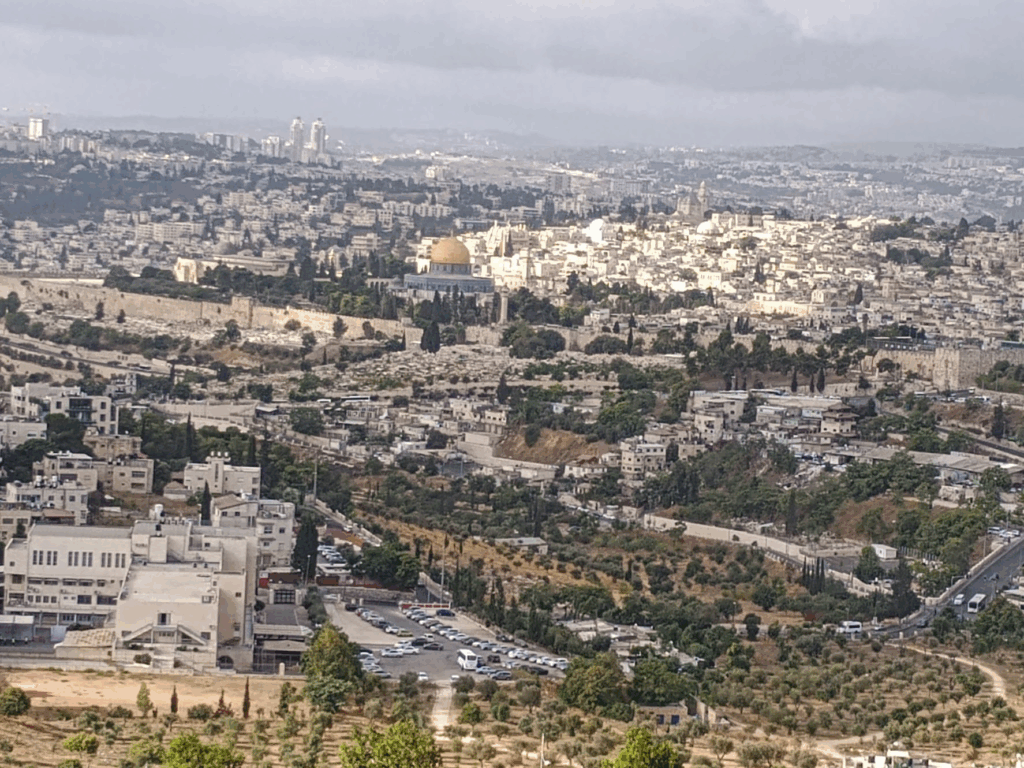
October 7, 2023 and its impact on the geopolitical map of the Middle East Thursday, October 23 at 6 pm Two years after the tragic Hamas terrorist attack on Israel and the subsequent war in Gaza, the geopolitical map of the Middle East has fundamentally changed. The so-called Axis of Resistance, led by Iran and its allies - Palestinian Hamas, Lebanese Hezbollah and Yemeni Houthis - has weakened considerably; the post-regional region remains unstable and potentially very dangerous. The main problem remains the unresolved situation in the Gaza Strip and the absence of a vision for a comprehensive solution to the Israeli-Palestinian conflict. What impact have the events of the last two years had on the Middle East and world politics? And what prospects can be expected for the future? These and other questions will be answered in her lecture by Eva Taterová, historian and Middle East expert from the Institute for Contemporary History of the CAS.
I know more than a name - an interview with Rachel Alon Margalit by Efraim Berkovic
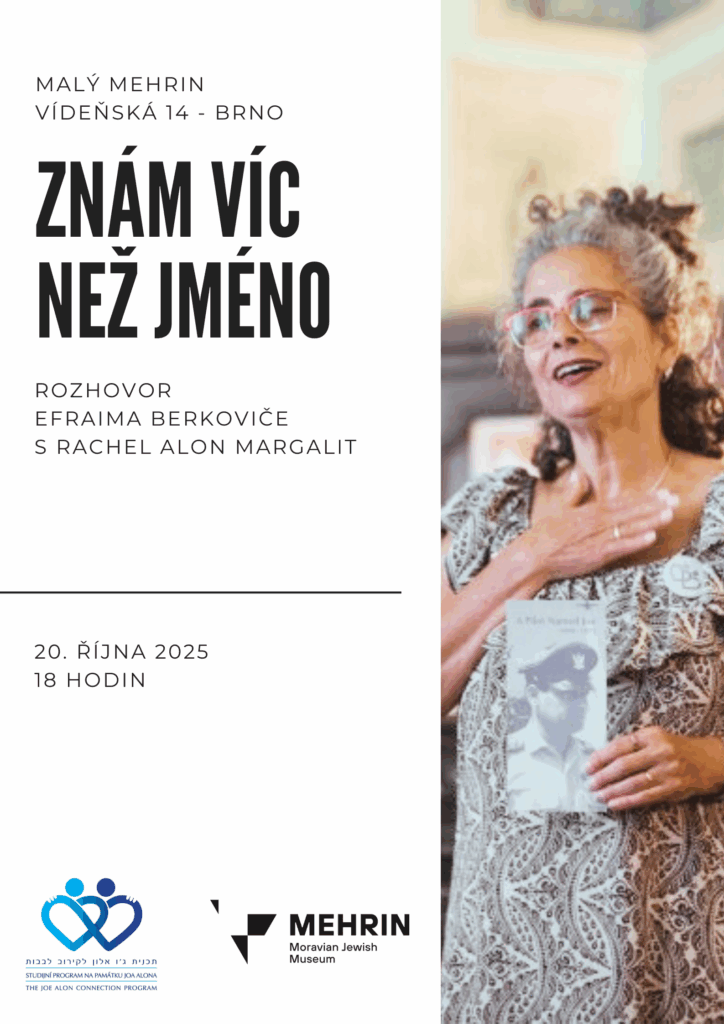
I Know More Than a Name - A Conversation between Efraim Berkovich and Rachel Alon Margalit Monday, October 20 at 6 p.m. We invite you to a unique evening during which we will touch on stories that connect personal family memory to the larger history and present. Rachel Alon Margalit will share her journey of discovering her own past - from the tragic fate of her grandparents who perished during the Holocaust, to the story of her Uncle David and Dad Joe Alon - the Winton children. The interview will also offer a glimpse of the other half of the family legacy, which Rachel received from her mother, Dvory Kirat, in Yemen. Among the topics discussed will be her relationship with her native Israel, her discovered connection to her Czech roots, and an introduction to the school education project Rachel founded in memory of her father. Rachel and Ephraim's meeting will offer a personal and social dimension and a space to reflect on how family stories intertwine with history and can inspire understanding across cultures and generations. The evening is being held as a companion programme to the exhibition Voices, which explores, among other things, the story of Rachel's grandparents, Tekla and Friedl Placzek. Admission is voluntary.
Guided tour of the permanent cellar exhibition in Malý Mehrin
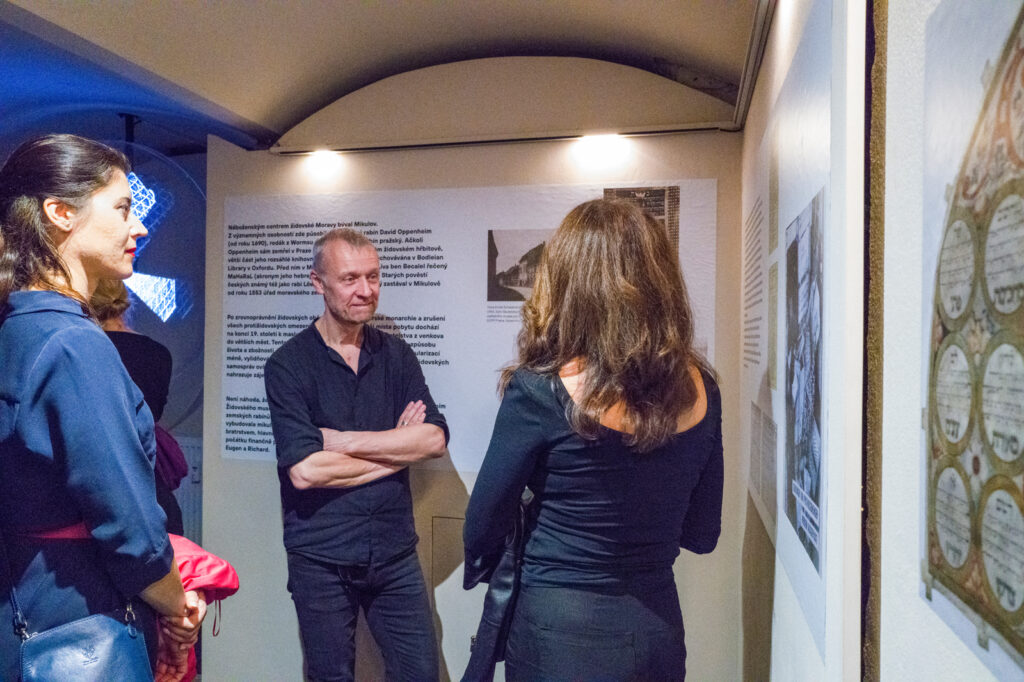
Guided tour of the permanent cellar exhibition in Malý Mehrin Wednesday 15 October at 5 pm Guided tour of the permanent cellar exhibition in Malý Mehrin on Vídeňská Street with our new collaborator - historian Jakub Kříž. Admission is voluntary.
Miloš Doležal: There's no one here but me
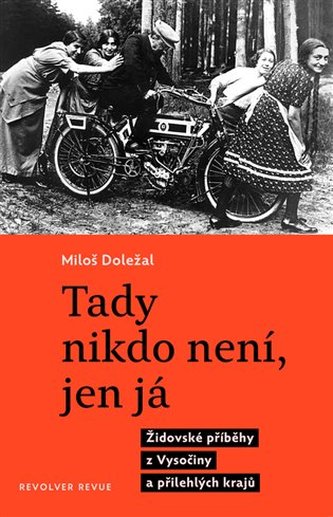
Miloš Doležal: There is no one here but me Thursday 9 October at 6 pm Miloš Doležal (1970) is a leading Czech poet, writer and publicist. His book about the martyred parish priest Josef Toufar won the Book of the Year award in the prestigious Lidové noviny poll in 2012, and his poetry collection Jana bude soon sbírat lipový kvě, in which he emotionally deals with the untimely death of his wife, won the Magnesia litera Book of the Year a few years ago. Doležal's journalistic activity is very rich, and in a somewhat simplistic way it can be said that he mostly deals with the fates of unassuming heroes, martyrs and people connected with his native Highlands. Almost all of this is true of his book There's Nobody Here but Me, in which he tells ten stories of people and places of Jewish origin. The Highlands are again a small stage, but the stories he pulls from the depths of the 20th century transcend the places where they took place in their meaning and message. What motivated Miloš Doležal to write these stories, what discoveries awaited him on his journey to find the chosen heroes and much more should be revealed in the discussion that Martin Reiner will lead with the well-known writer. Admission is voluntary.
Public commemoration of the events of 7 October 2023
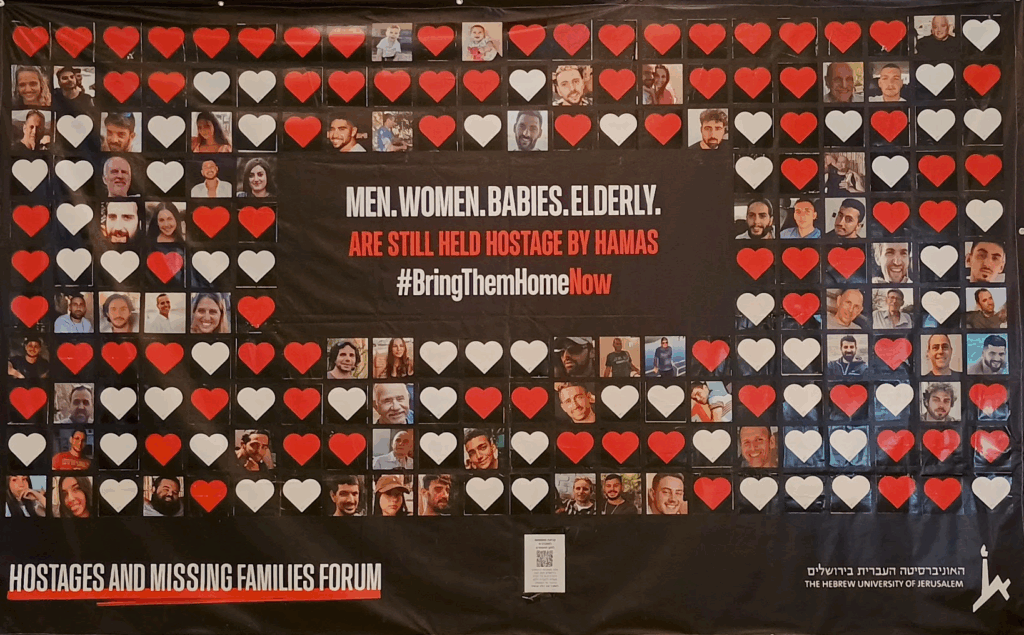
Public commemoration of the events of 7 October 2023 nám. Liberty by the Plague Column Tuesday 7 October from 4 to 5 pm Public commemoration of the events of 7 October 2023, during which the names of the abductees who are still in Palestinian captivity will be repeated.
Reminder of the events of 7 October 2023

Commemoration of the events of 7 October 2023 Tuesday, 7 October from 9 am to 1 pm Commemoration of the events of 7 October 2023, when the Hamas terrorist movement attacked Israel and killed soldiers and civilians. Ground attacks were carried out on Nir Oz, Be'eri and Netiv ha-Asara, Ofakim and Sderot, and kibbutzim around the Gaza Strip (including Kerem Shalom, Nirim, Cholit, Nir Am, Nachal Oz, Nir Yitzchak, Magen, Urim). On this day, the names of the kidnapped who have been unable to be with their loved ones for two years will be heard in our premises. Some of them will never meet them again, as they are very likely dead. You can make and pin a yellow ribbon on your own clothing at the Wienerplatz to express solidarity with the kidnap victims and support their return home.
IWalk seminar in Brno
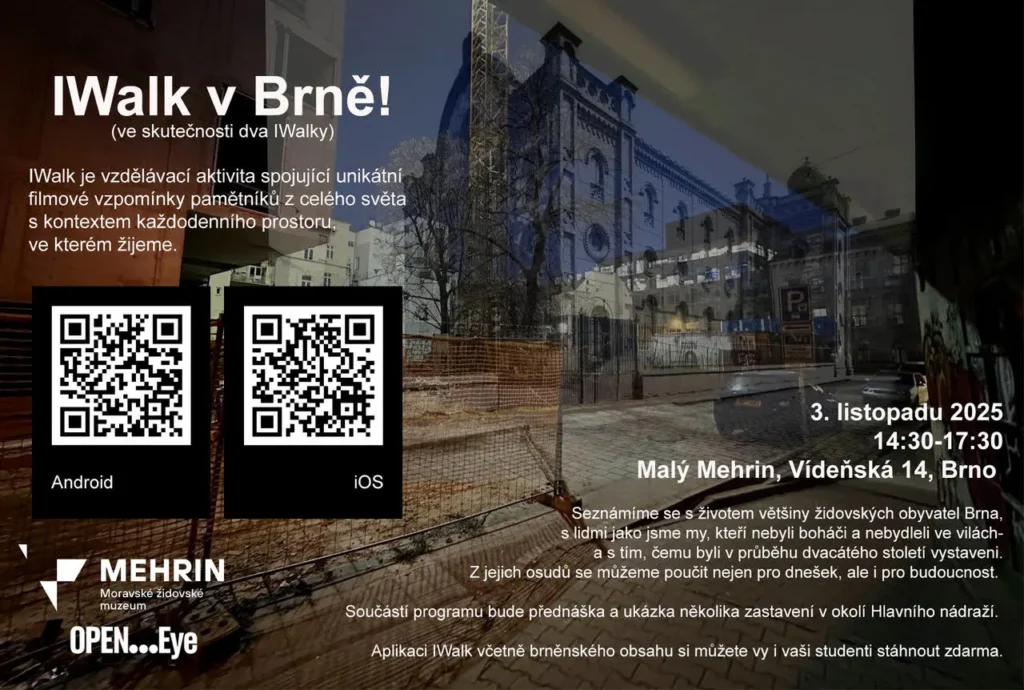
Seminar IWalk in Brno Date: 3/11/2025 at 14:30-17.30Place: Malý Mehrin, Vídeňská 14, BrnoLecturers: Martin Šmok and Táňa KlementováSign up at muzeum@malymehrin.cz In November we invite primary and secondary school teachers from South Moravia to an afternoon educational seminar - the topic of the seminar is interactive IWalk and its use in teaching pupils and students across different subjects. The USC Shoah Foundation's IWalk app is a mobile educational tool that connects authentic sites of memory with eyewitness accounts, historical materials, and professional context to allow users to experience history in the very setting where it took place. There are currently two walks in Brno, a total of nineteen routes for different locations in the Czech Republic and many more around the world. Access to all walks is free via the mobile app. The seminar will include an introduction to the app, its use in teaching and a walk through parts of the Brno IWalks in the field. The seminar is free of charge.
